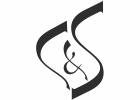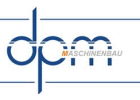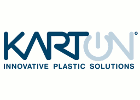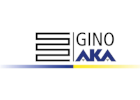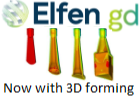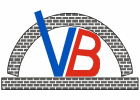With its innovative Echovai solution, Vetropack Group, one of Europe's leading manufacturers of glass packaging, is showcasing the world's first returnable bottle made of tempered lightweight glass at Drinktec 2022. An Echovai treated bottle impresses not only with its lower weight, but also with its resistance to abrasion, which results in higher circulation rates. A first pilot project with the Austrian brewery Mohrenbrauerei confirmed this. The containers are not only more durable, the logistics effort and the CO2 emissions per bottle are also reduced with Echovai.
For years, studies have shown that reusable glass containers rank among the most sustainable and environment-friendly packaging types. Only their weight and resistance were considered to be weak points of glass bottles. With Echovai, Vetropack has now become the world's first manufacturer of glass packaging to introduce a solution that significantly improves these elements. It is a particularly robust and material-saving form of lightweight glass bottle that is both up to 30 per cent less in weight than standard returnable bottles but also more resistant to abrasion. "This makes Echovai bottles a truly superior solution, both economically and ecologically. It actually has the potential to transform the market for returnable glass containers," explained Daniel Egger, Head of Innovation at Vetropack and one of the people responsible for the development of Echovai.
Tempered glass is not in itself a new idea, it has been applied successfully in other areas such as car windscreens for many years. However, the process has had its limits in glass packaging to date. The thermal treatment, which ultimately makes the glass more stable, requires early adopters to accept certain design limitations, simply because of their shape: "The biggest challenge with processing in our Echovai plant is variation in wall thickness distribution," said Daniel Egger. "Only high-quality, uniform bottles can be successfully tempered because their thermal treatment builds up a stress sandwich."
Special thermal process ensures high level of robustness
In fact, the Echovai process puts particularly high demands on production due to the elevated heat-up and then rapid cool-down of the bottles. This applies to the quality of the material just as much as to the production process and systems. "Fortunately, at Vetropack we work with bottles of high quality," Daniel Egger said. "In addition, we adjust the entire tempering process very precisely to the individual container and its shape. It's a very sophisticated, technologically demanding process that cannot be implemented easily, hence our phased approach to roll out."
It took around ten years of development work at the Vetropack Innovation Centre for Echovai to become reality. The robust lightweight glass containers are still produced exclusively at the plant in Pöchlarn, Austria. In phase one over the last three years, millions of bottles have been successfully sold and refilled by pilot customer Mohrenbrauerei and extensive tests have confirmed the extended life span and durability of bottles. In phase two, select new projects will show how and which other Vetropack plants will need to be made ready for Echovai production – the requirement for meeting the demand for Echovai bottles across Europe. "And we expect this demand to grow very quickly," said Daniel Egger. "Especially since the performance of Echovai in our pilot project is really outstanding." Phase 3 will see the possibility of licensing technology and know-how to third parties to allow for a wider market introduction.
Pilot customer draws outstanding ecobalance
As the first Vetropack customer, the Mohrenbrauerei located in Vorarlberg, Austria, has used Echovai containers for its "Pfiff Märzen" beer as well as "Radler" varieties over the past three years. And they are already planning to move more of their beer specialties into these innovative lightweight glass bottles. A look at the data shows why: for the 0.33-litre returnable bottles alone, the use of the Echovai solution (210 grams) results in a weight saving of around a third compared to the standard bottles used up to then (300 grams). At the same time, the lightweight glass bottles can be stored six high instead of five on a pallet due to their reduced height. This has enormous effects on the logistics volume: in the case of the "Pfiff Märzen" beer and the "Radler" varieties, a reduction by around 1,000 tonnes per year was achieved. As a result, the CO2 emissions per bottle fell to only a quarter of the normal 0.33-litre returnable bottle.
In terms of robustness, the solution is also showing strong performance: not only do fewer bottles break during industrial use, but after three years and up to 12 cycles, the containers have so far shown hardly any wear on the contact surfaces (scuffing). "A large part of them can still be classified as 'as good as new', which is not the case with standard bottles after so many cycles," explained Daniel Egger. "We therefore expect Echovai bottles to achieve a markedly higher number of cycles – which makes them an even more compelling solution compared to standard bottles."
Environment-friendly alternative also for products in one-way bottles
Echovai bottles are an alternative not only for beverage producers who already sell their products in returnable bottles. Mr Egger and his colleagues also see great potential for the new Vetropack solution in the segment of one-way glass containers because until now it is often the weight increase that plays a decisive role here. Echovai therefore could promote the switch to returnable bottles since brand owners usually want to keep their unique bottle characteristics. "Our long-term goal is to have a more user-friendly return and refill system with 100 percent bottle reuse," explained Daniel Egger. "For instance, we are already working on a solution for optimized traceability of our Echovai bottles. By applying a specific data matrix code to each bottle, we will soon be able to link any data to the individual product unit. This can allow us to link different parts of the value chain, which are currently viewed separately, and to trace them through the entire supply chain – from production and bottling to the end customer and back again, thus also marking the dawn of a new era of digital interlinking."





